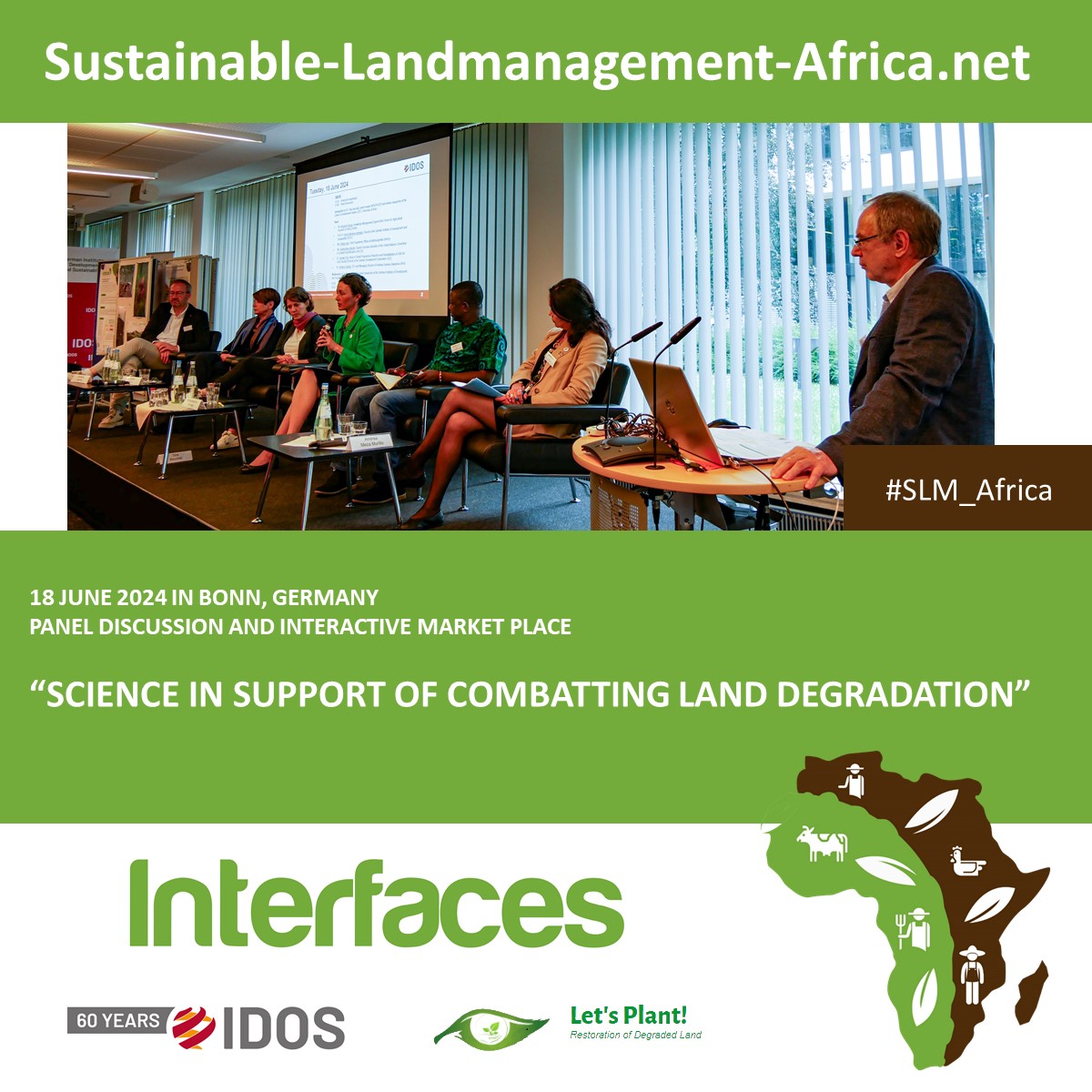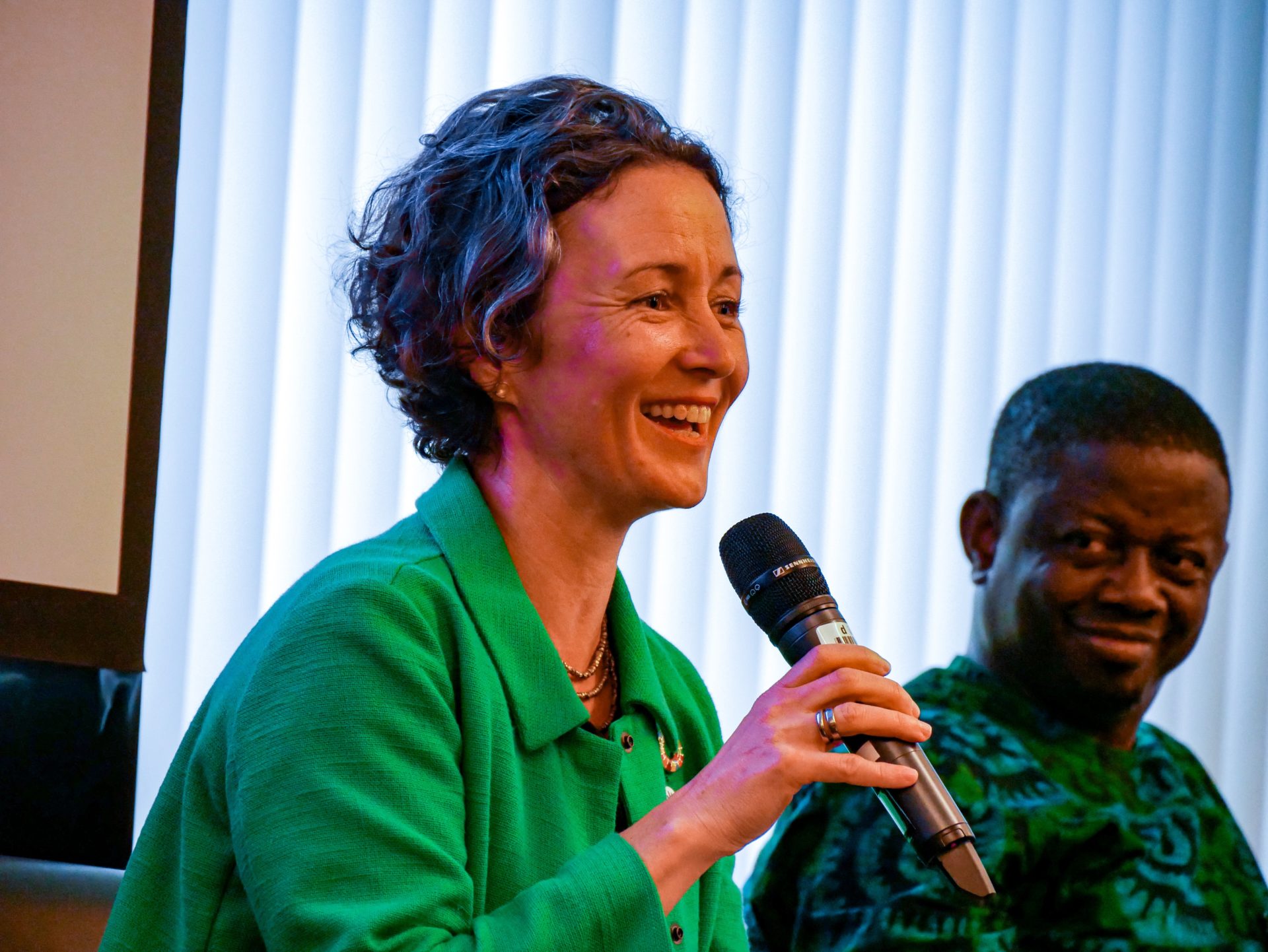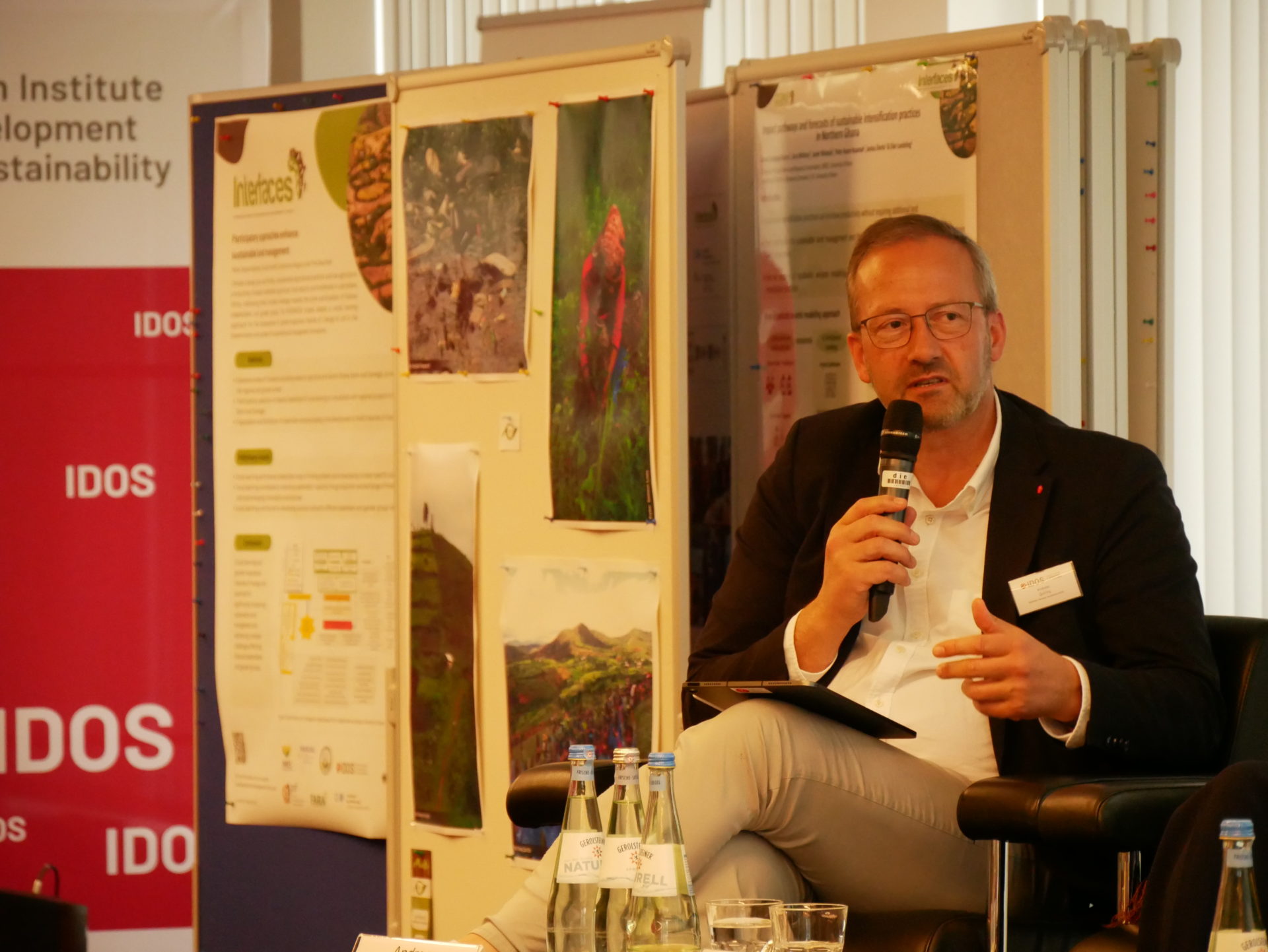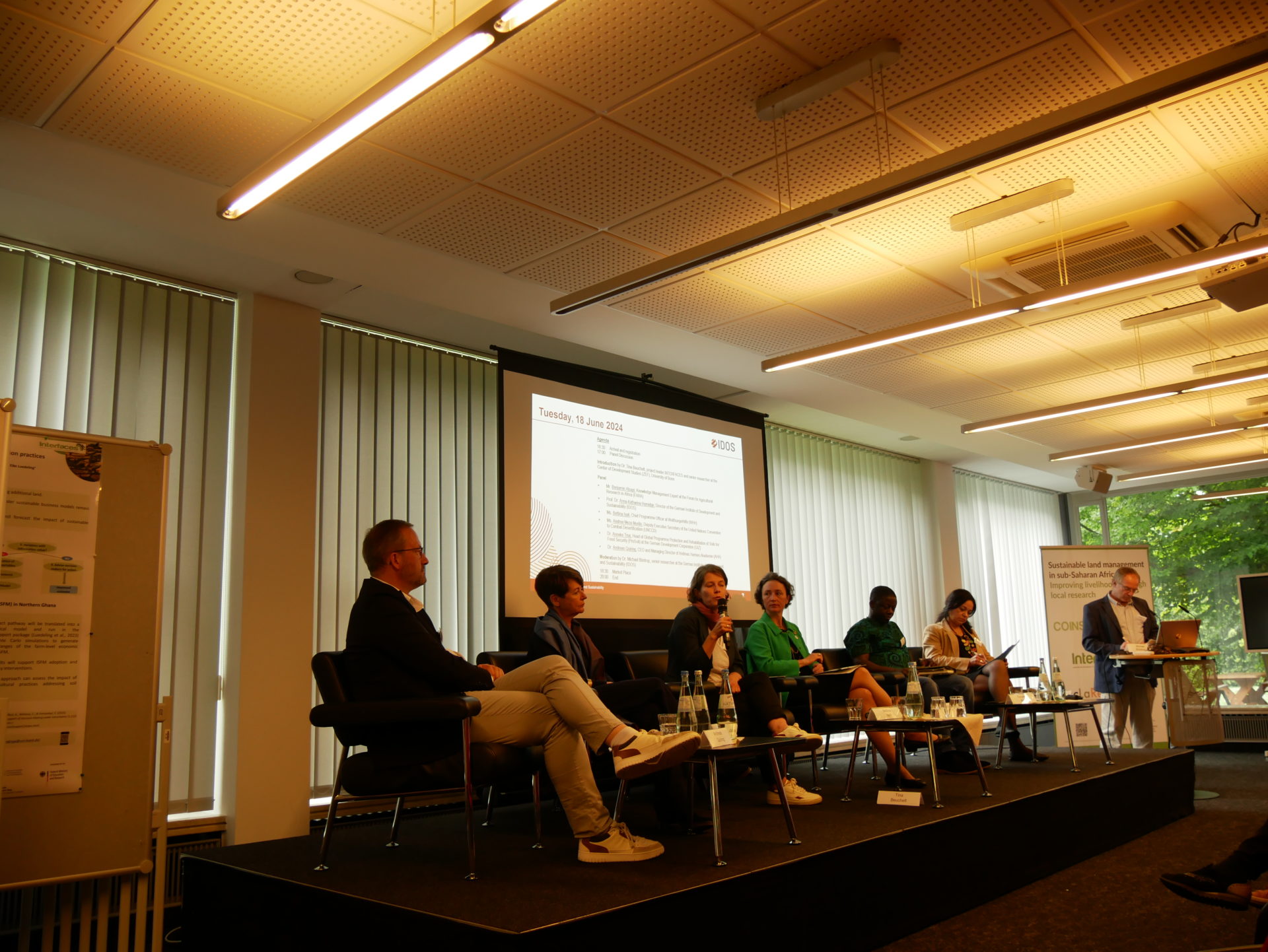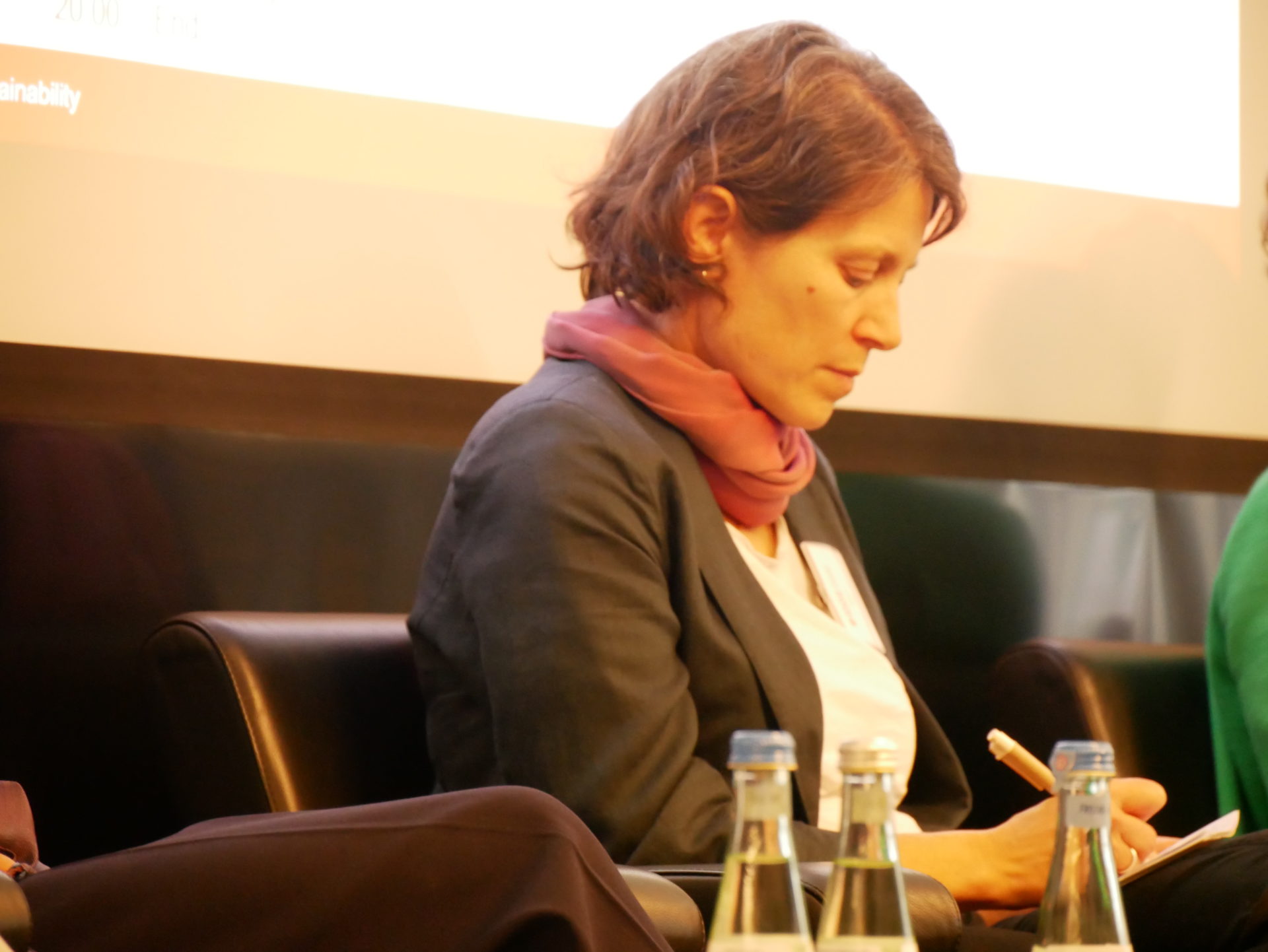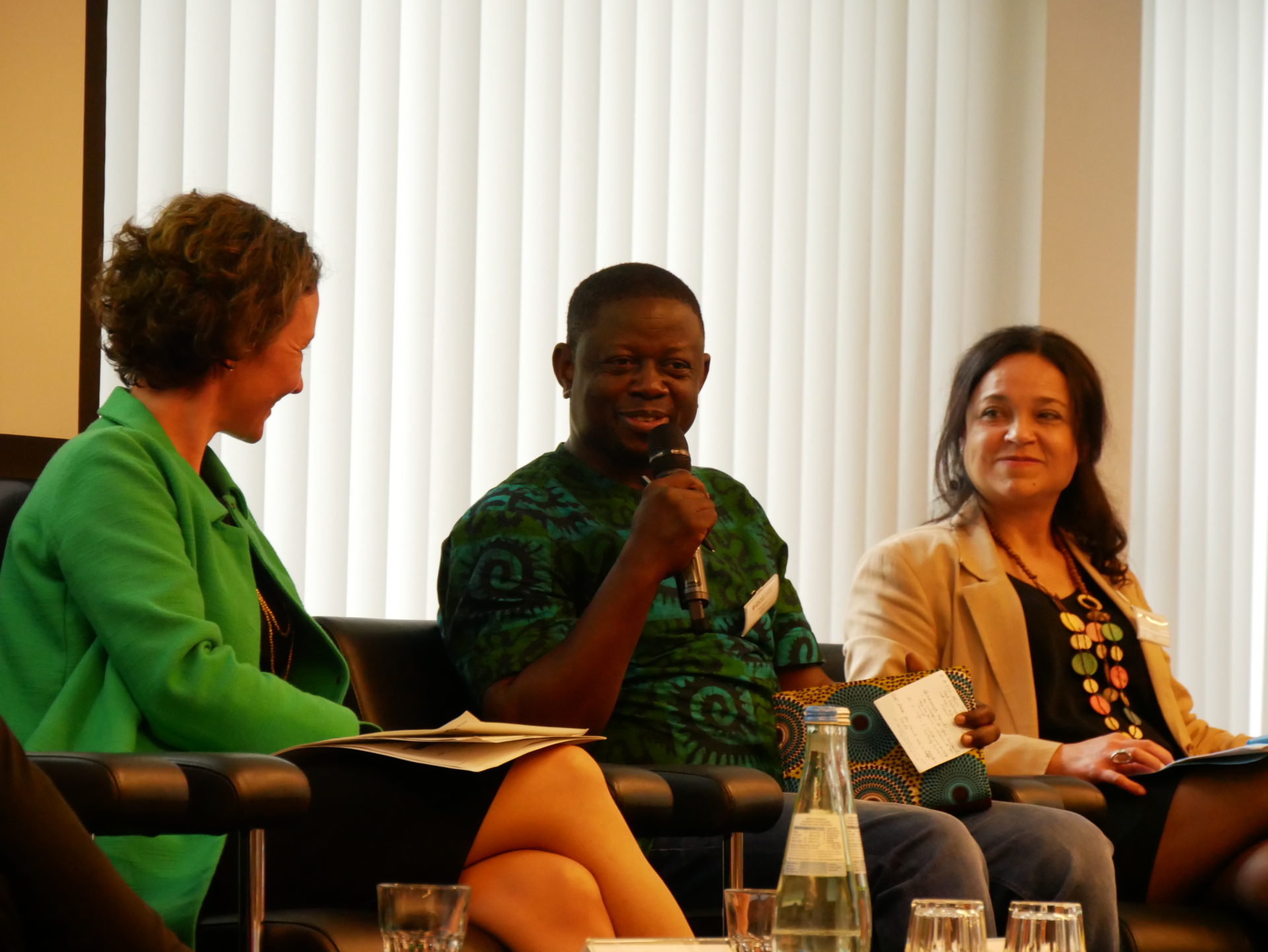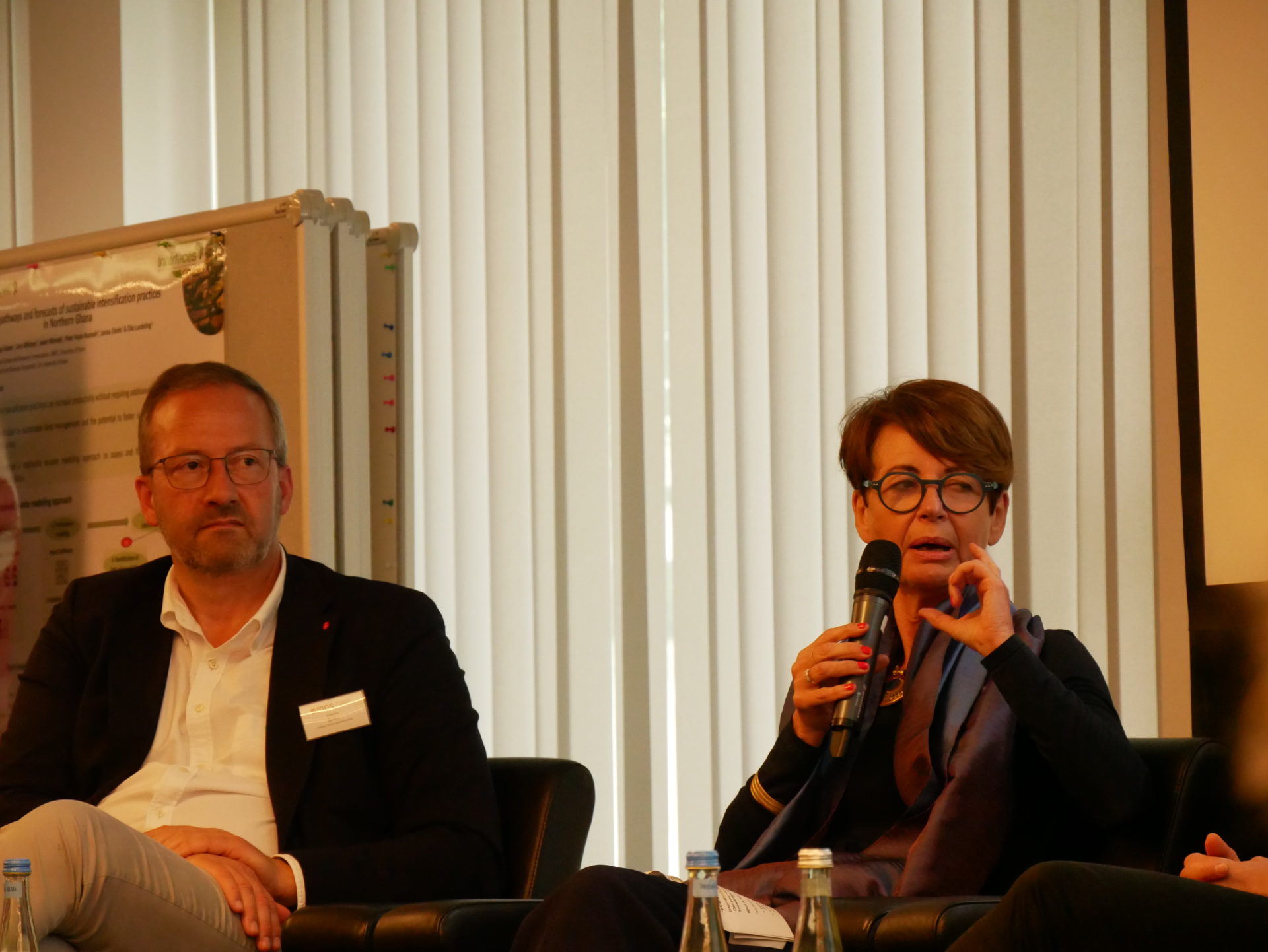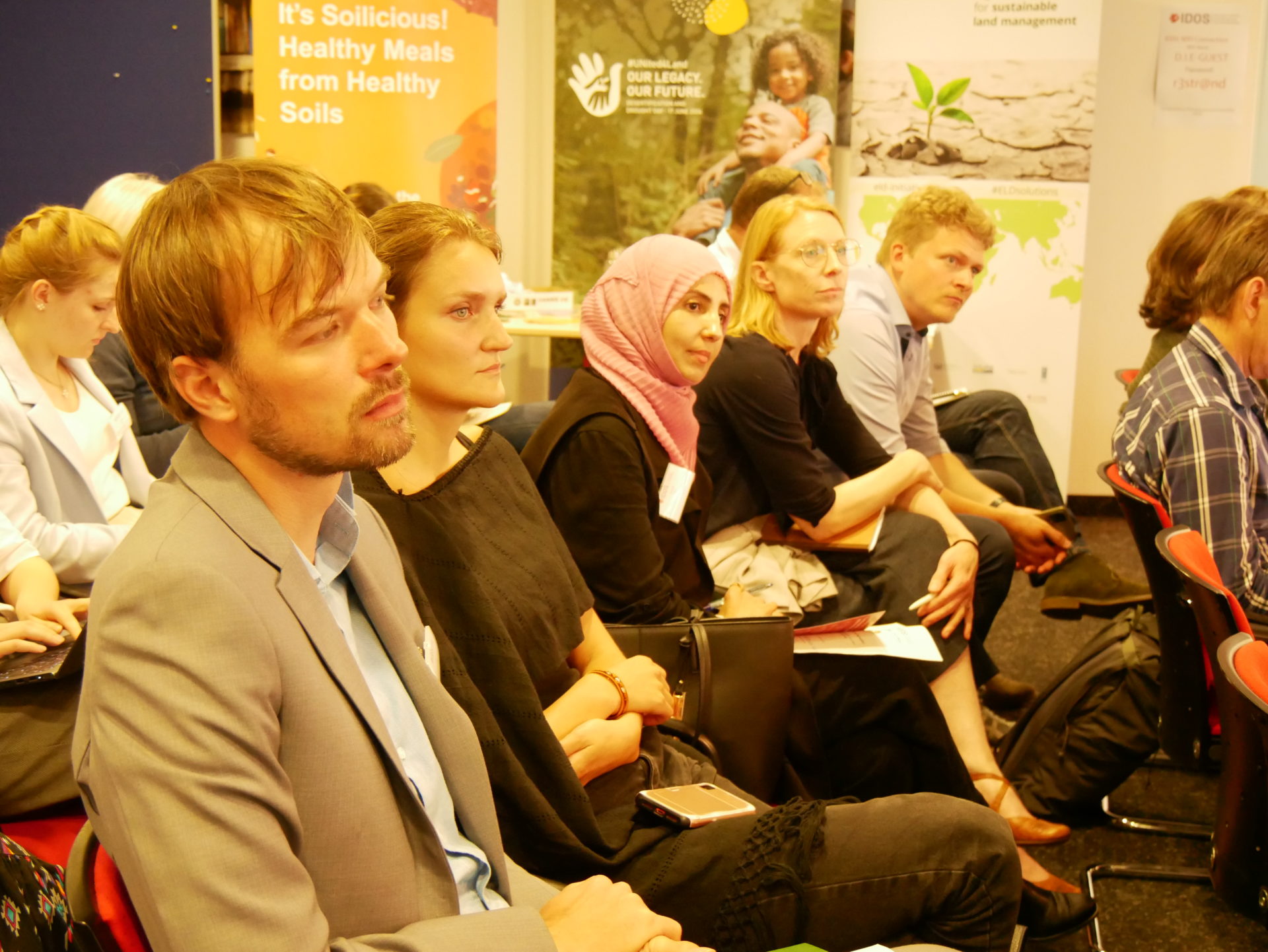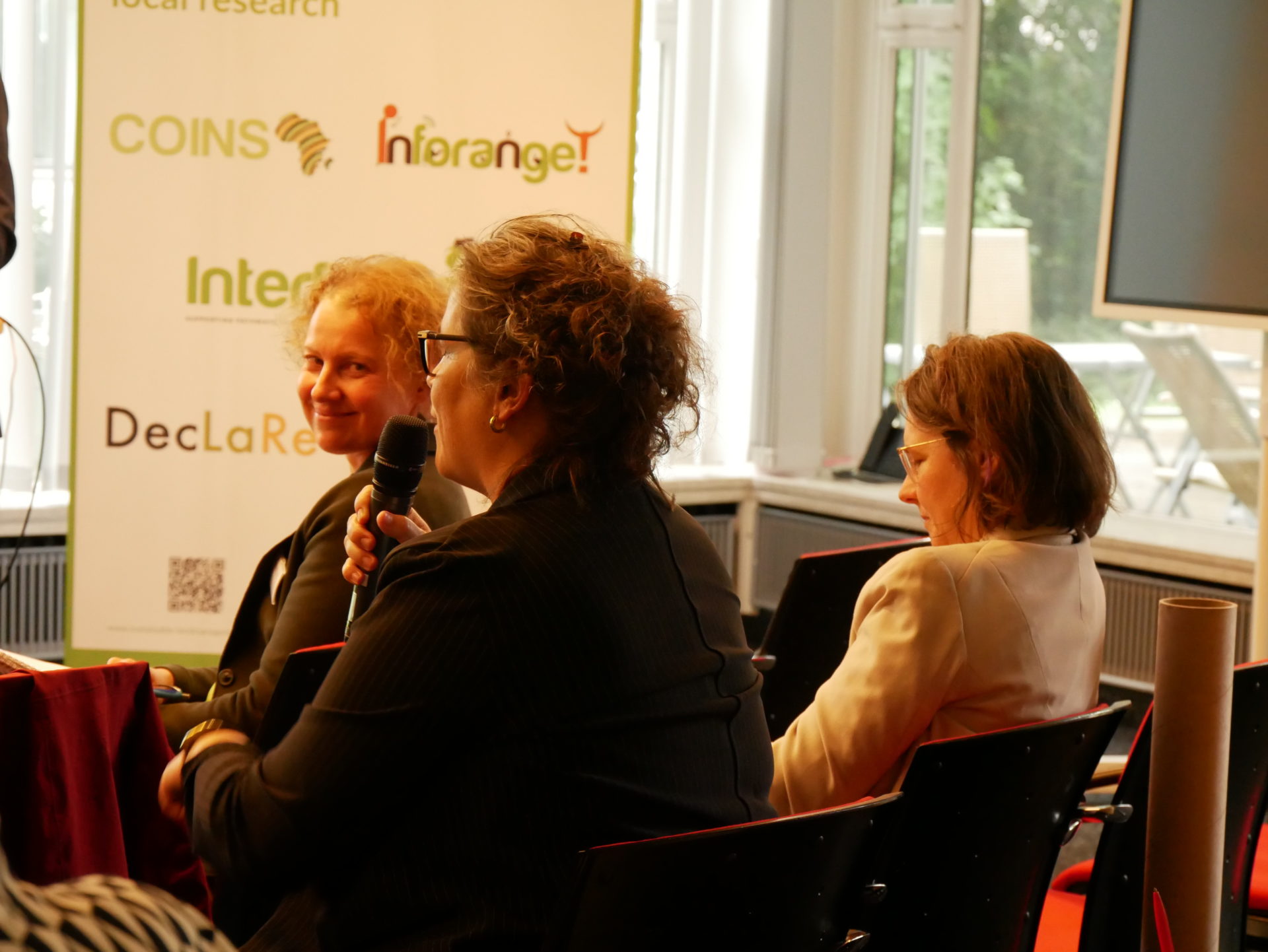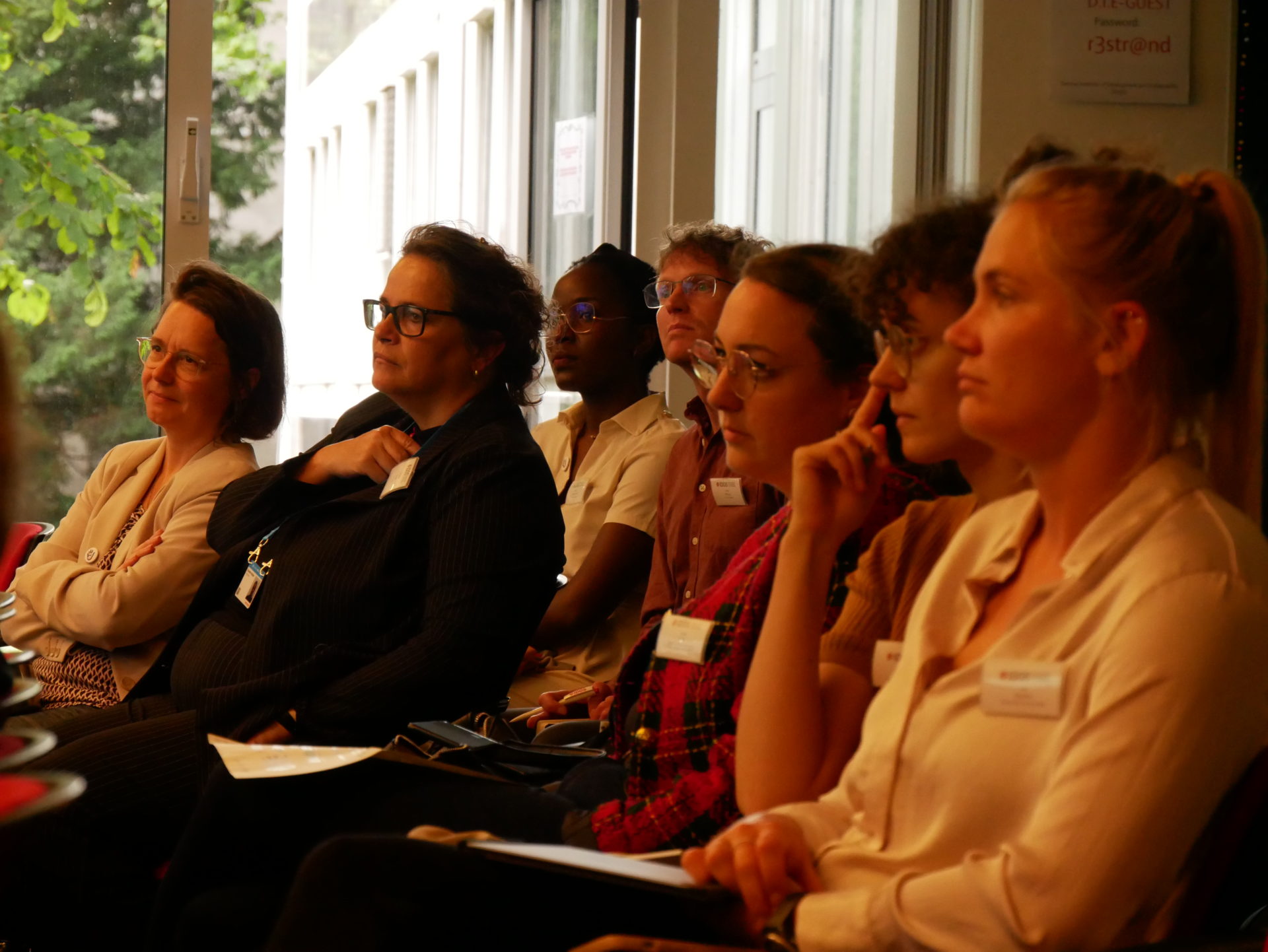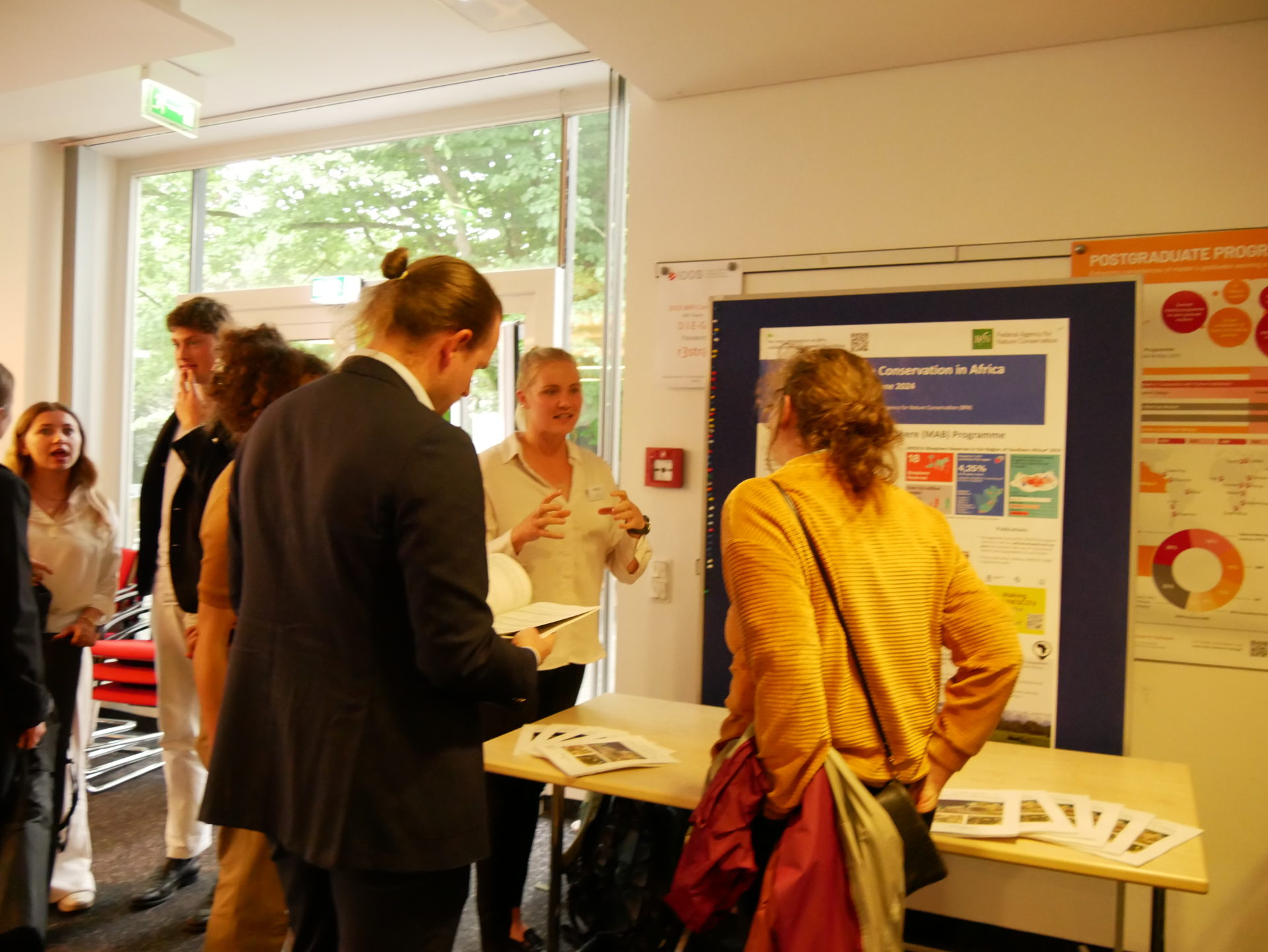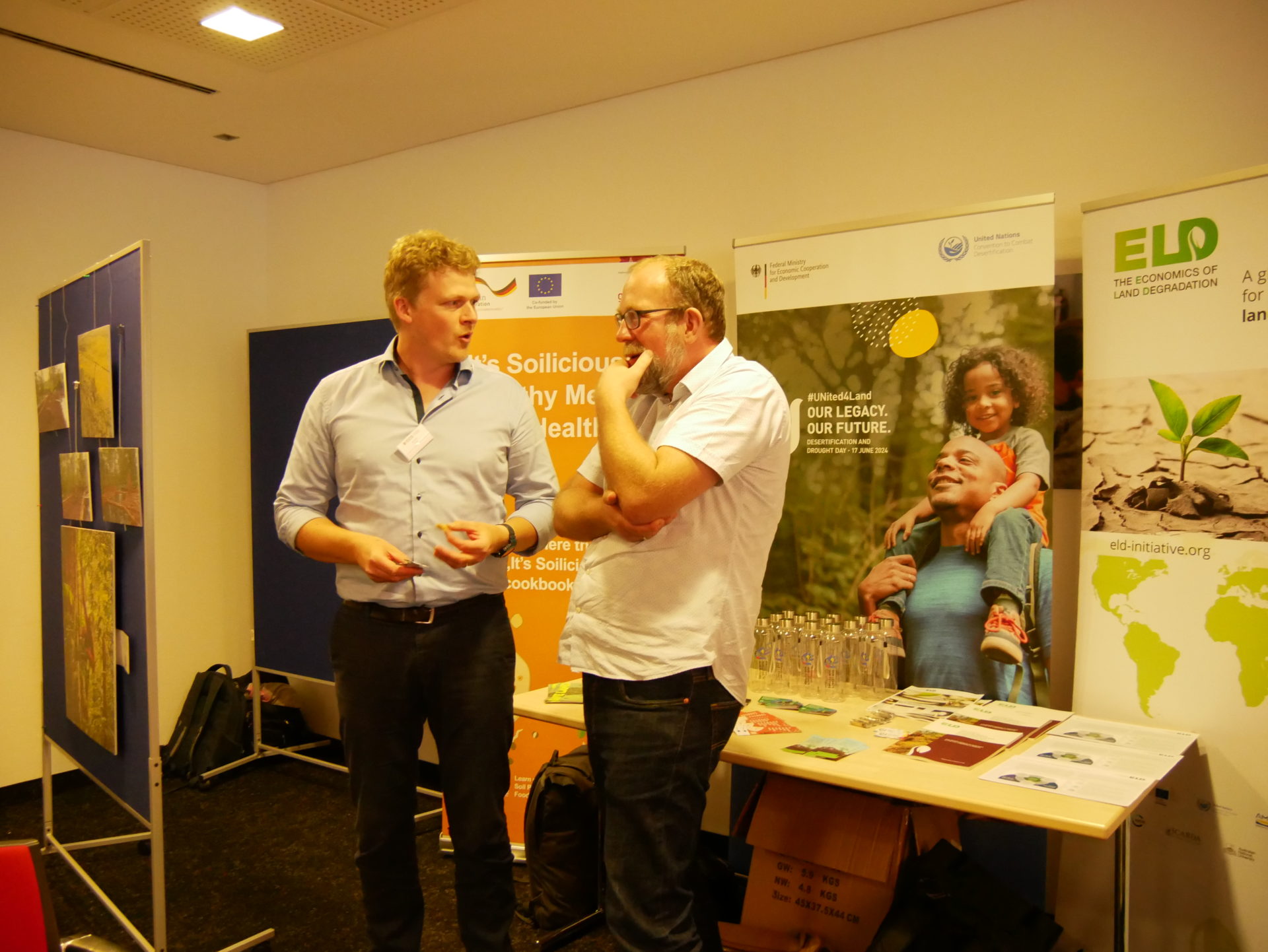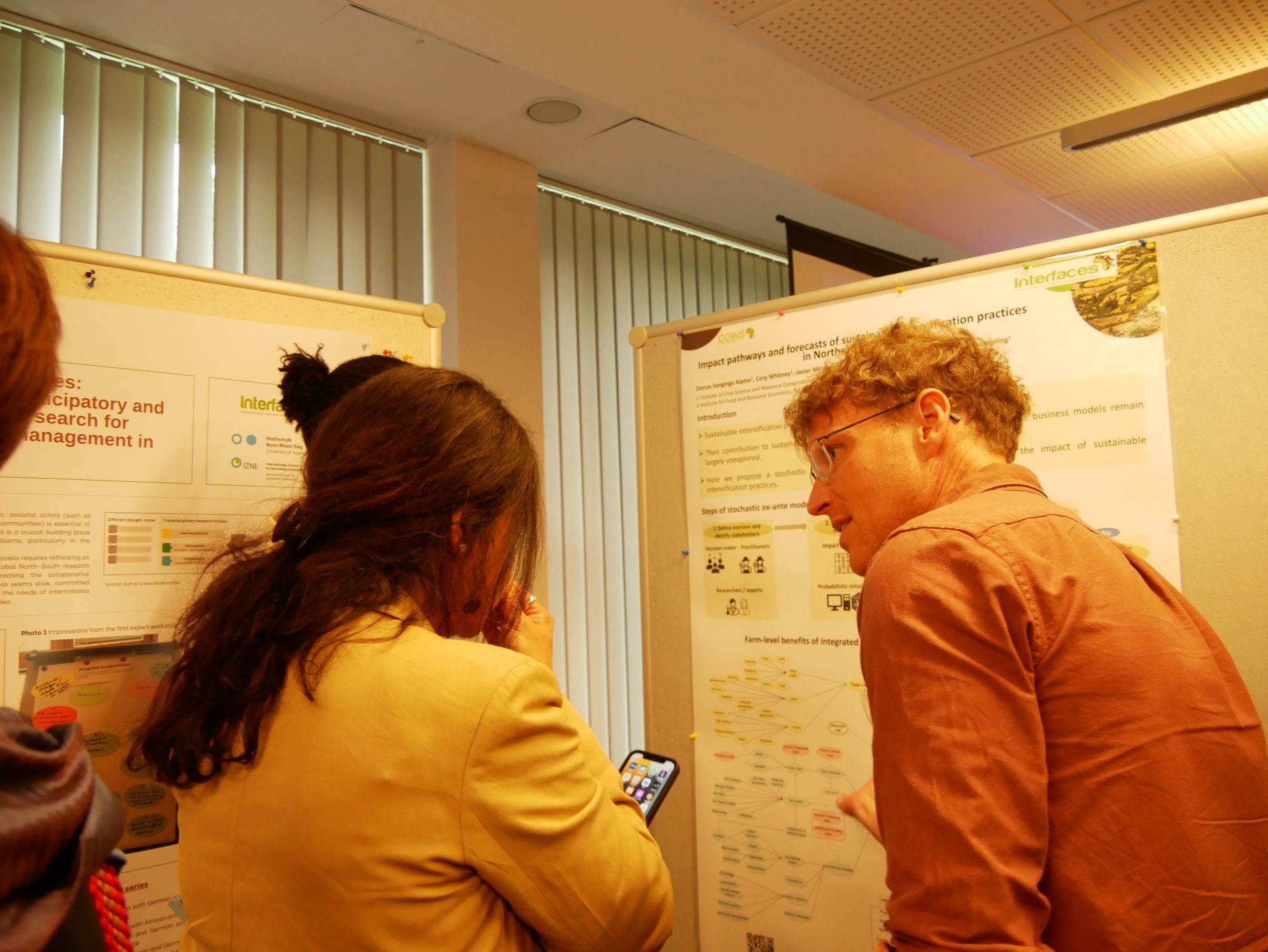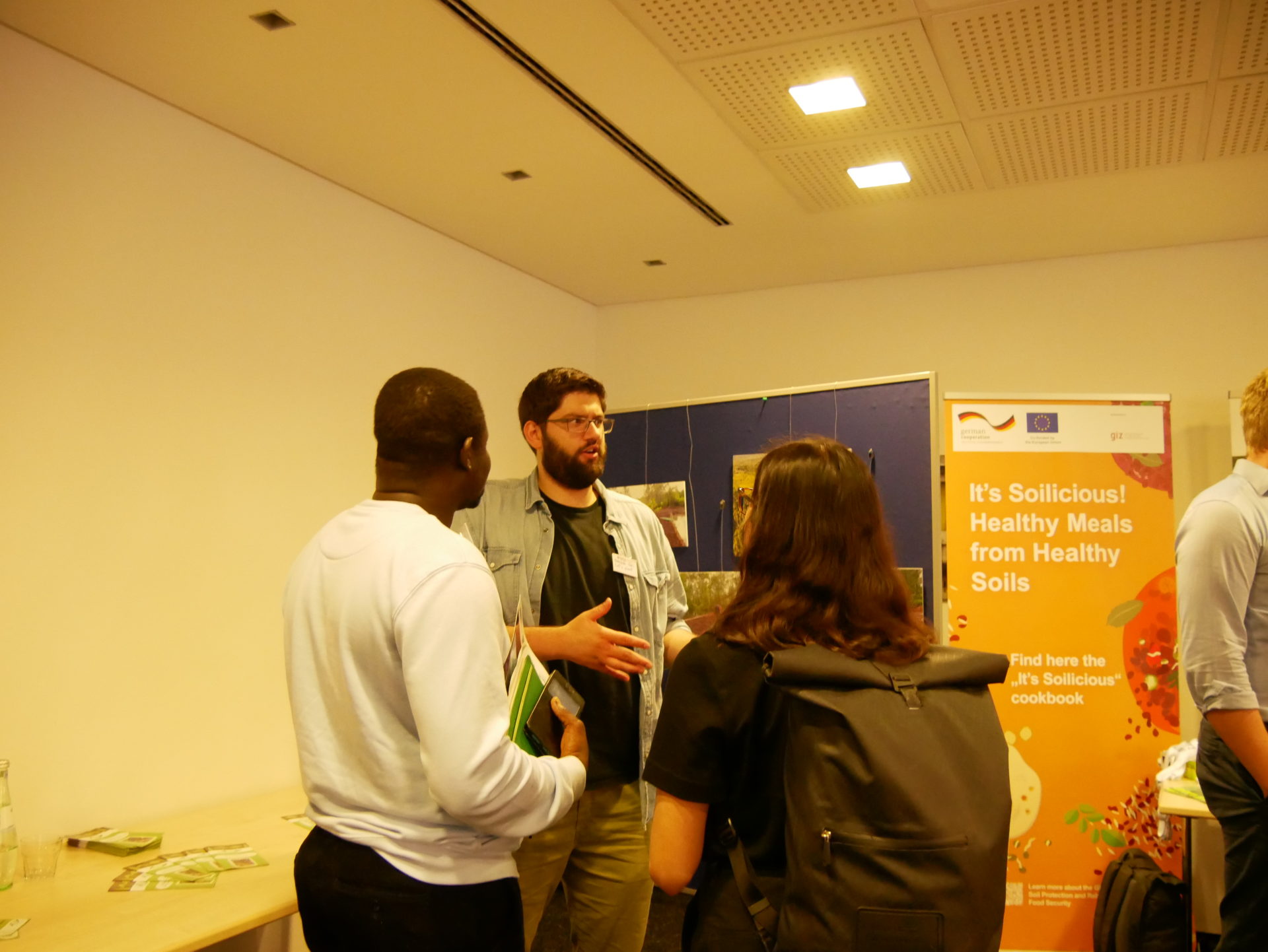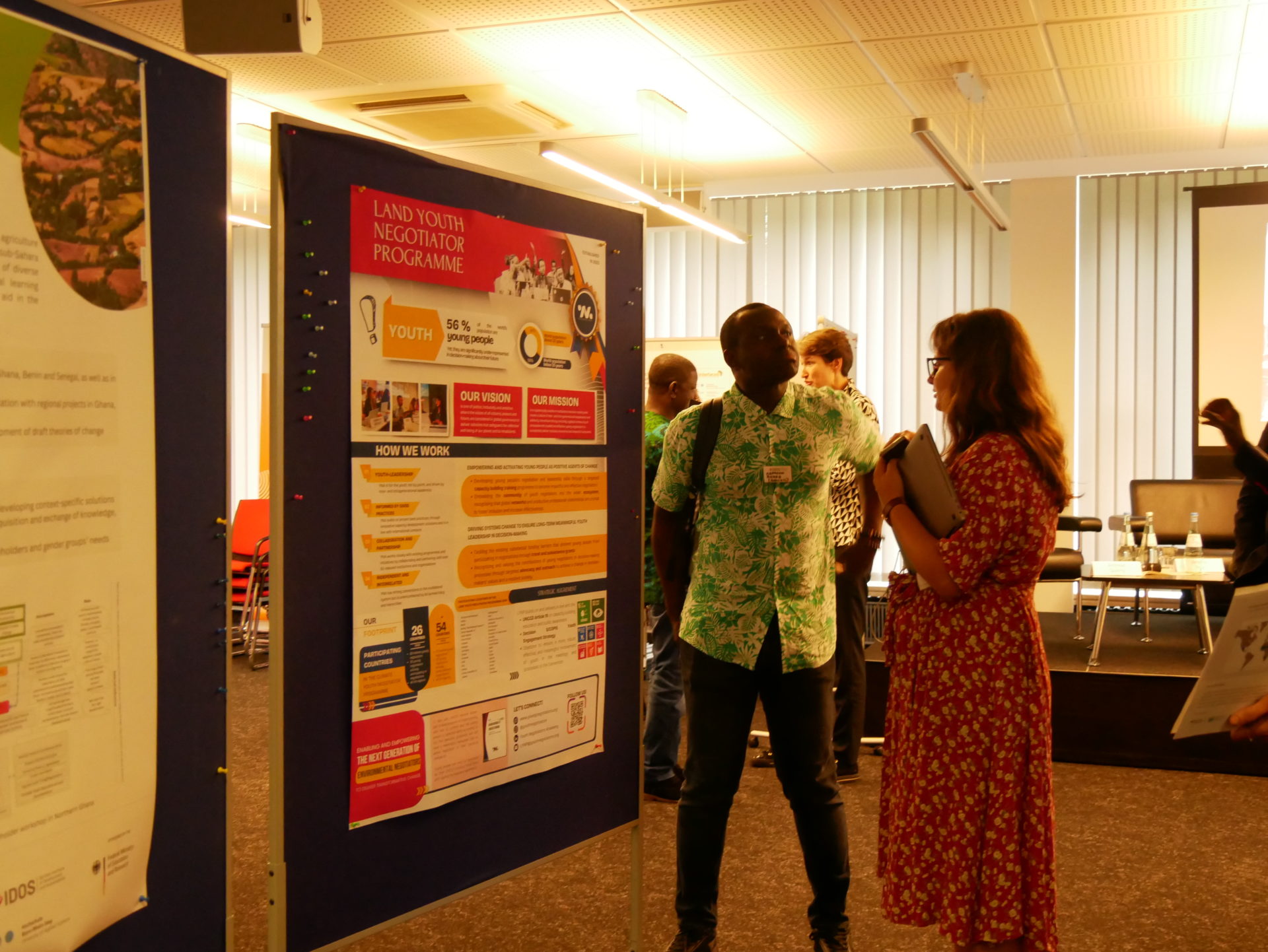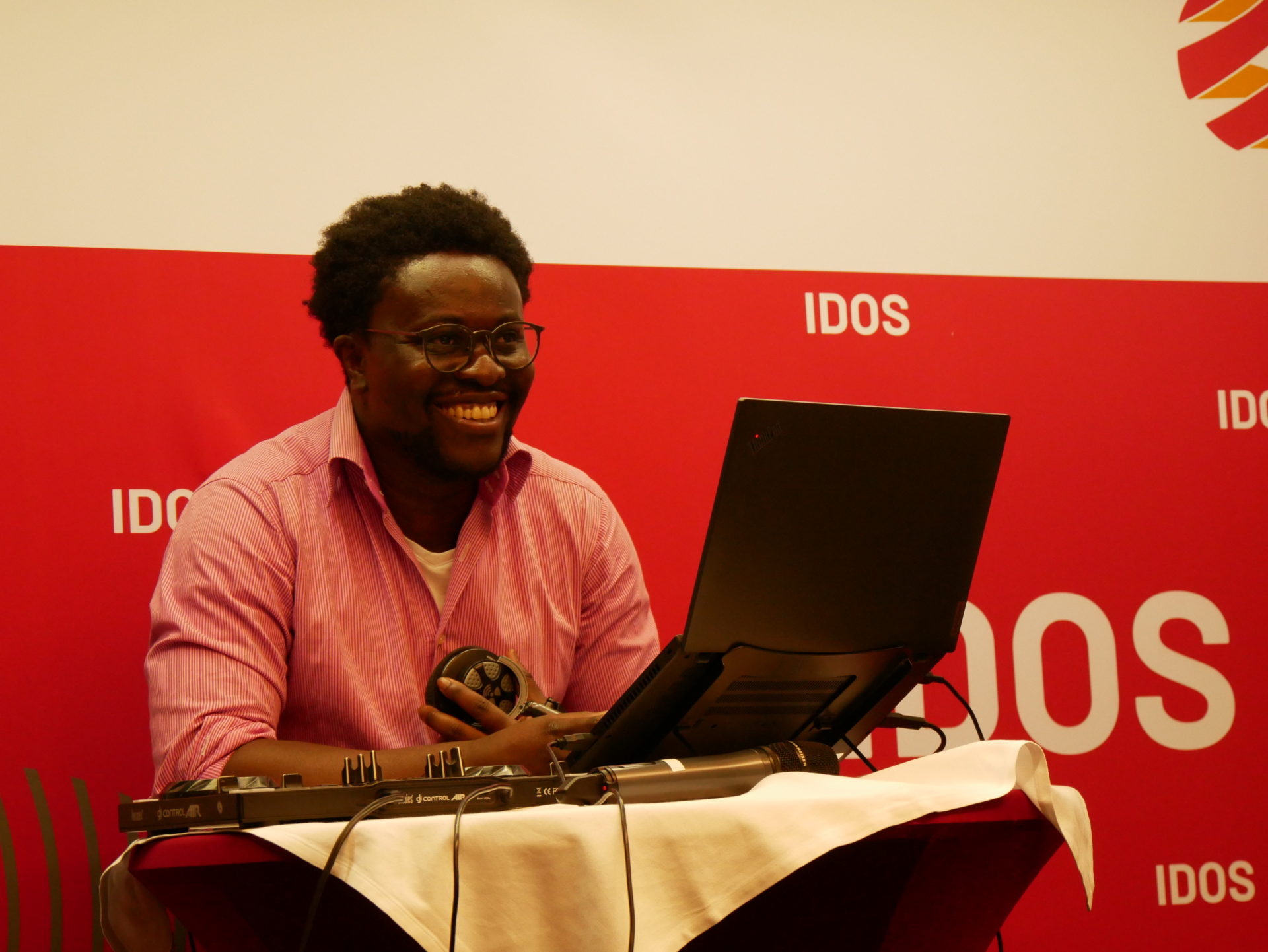The evening kicked-off with a panel discussion that delved into the crucial question: How can we improve the interlinkage of scientific research and practical knowledge for successful project implementation? A distinguished panel of experts shared their experiences and lessons learned in knowledge exchanges, which included: Mr. Benjamin Abugri, the Knowledge Management expert at FARA; Prof. Dr. Anna-Katharina Hornidge, Director of IDOS; Ms. Bettina Iseli, Chief Programme Officer at Welthungerhilfe; Ms. Andrea Meza Murillo, Deputy Executive Secretary of the UNCCD; Dr. Anneke Trux, Head of ProSoil at GIZ; and Dr. Andreas Quiring, CEO and Managing Director of Andreas Hermes Akademie.
One of the key aspects discussed for the success or failure of any project is the use of a multi-stakeholder approach. By bringing together stakeholders from across disciplines, different perspectives can be fostered whereby enhancing the effectiveness of strategies to combat desertification, droughts and soil degradation. The panel itself reflected this diversity and were able to offer insights into how knowledge exchange in a multi-stakeholder approach can undercover unforeseen obstacles. Furthermore, in line with this approach, Anna-Katharina Hornidge emphasised the importance of including local knowledge, which is often overlooked.
Sharing knowledge from diverse regional contexts dealing with similar challenges can aid in scaling up for policy solutions. This was another point of discussion by the panelists. “When it comes to transforming scientific results into action”, Andrea Meza Murillo suggested, “in many cases we need to ‘upscale’. We have to understand what went well on a local project level and upscale it to a policy level.” INTERFACES’ “Follow-the-innovation” approach—that includes participatory observation activities and shared learning—goes hand-in-hand with this notion.
The panelists did not only share their success stories working at the interface between research and implementation but further shared challenges they have encountered in the past. For example, the limited timeframe of most projects can hinder the long-term impact and sustainability of initiatives. Additionally, resistance to change and misalignment of goals among stakeholders can pose significant obstacles. Therefore, ensuring that all participants are on the same page with a common objective is crucial for the success of any project. Communicating complex models and research results in a simplified manner to convince policymakers is another challenge, which in turn has the potential to hinder the aforementioned “upscaling” of projects. Engaging actors at different levels, from heads of state to local leaders, is essential to foster broad-based support for measures and policies against land degradation.
Following the initial input from the panel discussion, the floor was opened to the audience. Participants shared their experiences on knowledge exchange and management, generating further discussion and bringing in new talking points contributing to the overall diversity of perspectives.
The interactive marketplace, which rounded out the evening, provided attendees with a platform to explore ideas sparked by the panel discussion as well as to present their own. Various organisations and participants displayed their projects and innovations, encouraging the exchange of knowledge and networking. The marketplace featured poster presentations of preliminary findings and activities from ongoing projects. INTERFACES’ input for example focused on participatory and gender-responsive approaches for sustainable land management, as well as factors to improve resilience. Further poster, for example provided information on forecasting integrated soil fertility management using decision support analysis and addressed global malnutrition through a transdisciplinary approach. Finally, a poster from the H-BRS team preliminary results from an ongoing workshop series on “Good funding practices to advance transdisciplinary research on sustainable land management in Africa”
The event underlined the importance of fostering collaboration and sharing knowledge revealing how science works in support of combatting land degradation. The celebration of the 30th anniversary of the UN Convention to Combat Desertification was not just a look back at achievements, but also provided impulses to strengthen the links between science, policy and practice towards sustainable land management.
Authors: Christina Meyer and Theresa Weise
Photo credits: Sushmita Saha ((c) IDOS)
